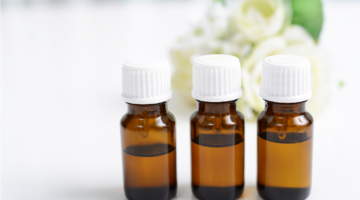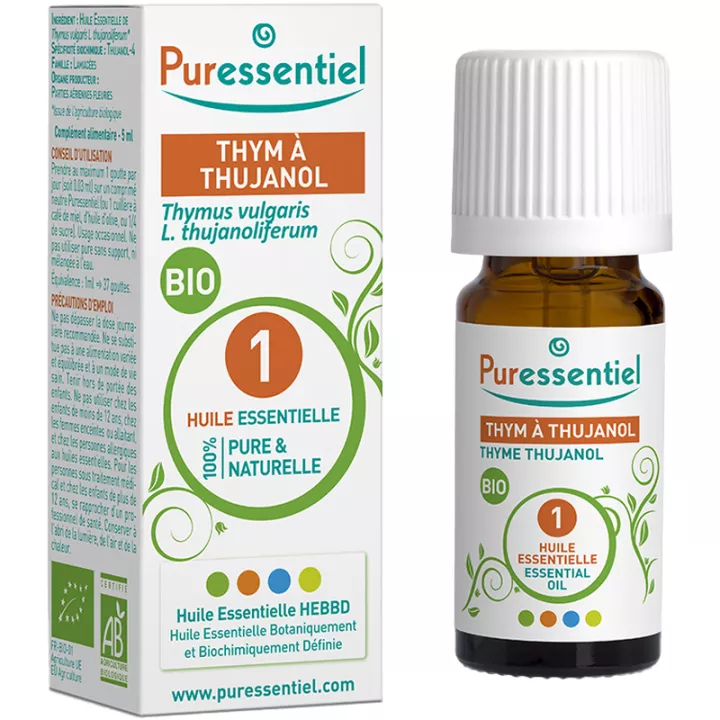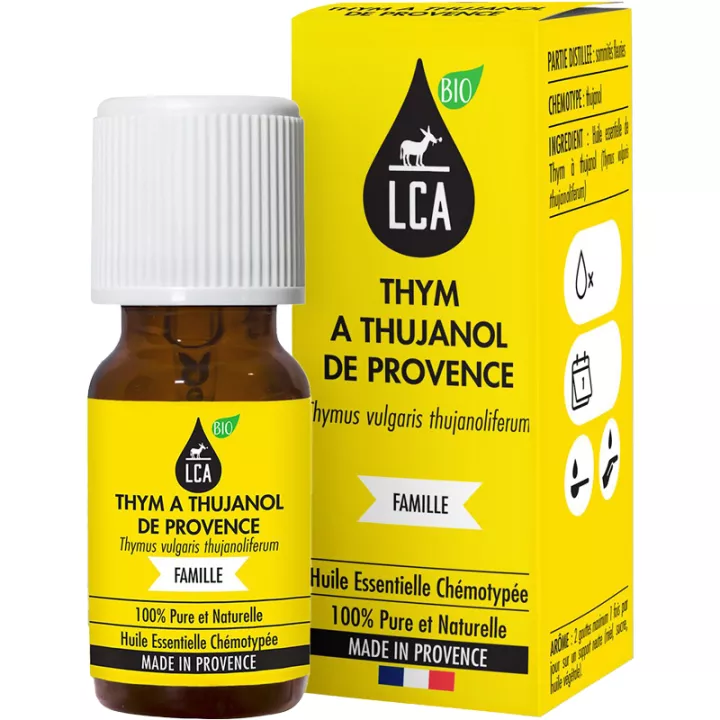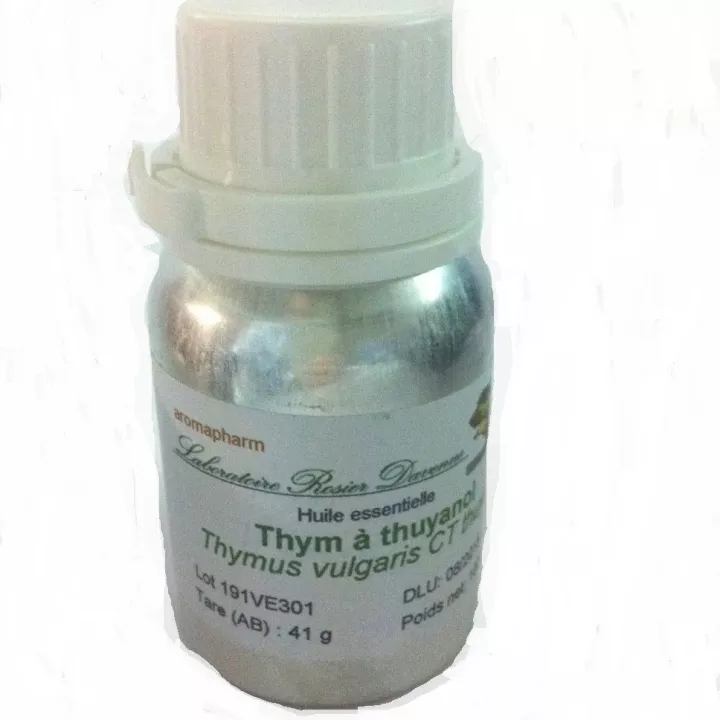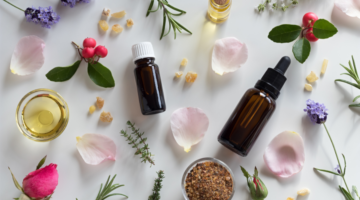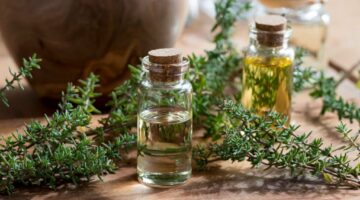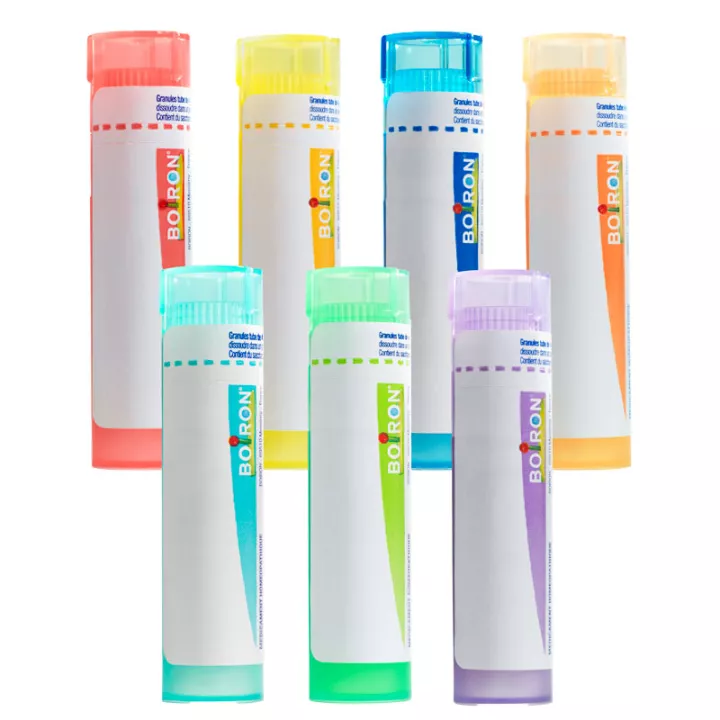What is Pranarom Thyme essential oil used for?
Savory Thyme essential oil is used to combat general exhaustion. It is highly effective in preventing and treating winter ailments.
Savory is a small, bushy woody plant that can grow up to 40 cm tall. It has small, curved leaves with dark-green edges, covered with hairs and trichomes. Thyme is an aromatic plant that perfectly illustrates the interest of classifying essential oils by chemotype, since depending on where it grows, the climate and many other factors, thyme produces essential oils with different properties. The chemical polymorphism of Thymus vulgaris was initiated by Granger et al. in 1963. Between 1971 and 1986, Passet, Granger and Vernet et al. identified six thyme chemotypes: geraniol, α-terpineol, thuyanol, linalool, carvacrol and thymol.
- Anti-infective, antibacterial, antiviral, antifungal
- Immune stimulant
- Liver stimulant and regenerator
- Blood activator, circulatory, warming
- Neurotonic, balancing, nerve harmonizing
Traditional uses of Thyme essential oil :
- Respiratory and ENT infections: nasopharyngitis, angina, bronchitis, sinusitis, otitis, rhinitis, flu
- Mouth infections: aphta, herpes, gingivitis, stomatitis, tonsillitis
- Gynecological infections: endometritis, cervicitis, salpingitis, venereal condyle, herpes
- Urinary tract infections: cystitis, vulvitis, vaginitis, urethritis, prostatitis
- Liver failure: viral hepatitis, cirrhosis, etc.
- Dermatological disorders: mycosis, dermatitis, wounds, etc.
- Arthritis, tendonitis, osteoarthritis, neuromuscular disorders
- Nervous disorders: nervous asthenia (fatigue), depression, nervous disorders
- Cold extremities (fingers, feet...)
Thujanol Thyme essential oil has powerful antibacterial properties. Its main active compound, thujanol, acts effectively against a wide range of pathogenic bacteria, including antibiotic-resistant strains. This property makes it an ideal choice for treating bacterial infections ranging from skin infections to respiratory infections.
In addition to its antibacterial action, this essential oil has significant antiviral properties. It can help fight viruses responsible for common viral infections such as colds, flu and respiratory infections. By strengthening the immune system and inhibiting viral replication, it helps reduce the duration and severity of these infections.
Thujanol Thyme essential oil acts as a powerful immunostimulant, strengthening the body's natural defenses against infection. It stimulates the production of white blood cells, reinforcing the immune response and helping the body to fight pathogens effectively. This property makes it an invaluable ally in preventing infections and supporting overall health.
This essential oil also has anti-inflammatory properties that can relieve pain and inflammation. Carvacrol, another compound present in the oil, acts as an anti-inflammatory agent by inhibiting the enzymes responsible for the production of pro-inflammatory cytokines. As a result, it can be beneficial in relieving joint and muscle pain and skin inflammation.
Rosier Davenne distillers also offerThyme thuyanol essential oil at the best price in our online pharmacy.
How to use this essential oil
By mouth: **** By skin: **** Diffusion: not recommended
- Internal use: 3 times daily, 2 drops of Thyme thujanol essential oil mixed with honey or olive oil, placed on a sugar cube or directly under the tongue. Thyme essential oil can be applied to mucous membranes (does not contain phenols).
- External use: Mix 3 drops of Thyme à thujanol essential oil with 4 drops of hazelnut vegetable oil and massage into the solar plexus twice a day. or 2 drops of pure CTEO of Thyme à thujanol 3 times a day on the area to be treated, until clearly improved. In case of temporary unavailability, consider Origanum majorana.
Precautions for use
This product is not a substitute for a balanced diet.
Do not exceed recommended dosage. Unless directed by a doctor or pharmacist, do not use during pregnancy or breastfeeding, or on children under 3 years of age. Store away from heat and light.
What does it contain?
Botanical name: Thymus vulgaris CT thujanol
Family: Lamiaceae
Producing organ: Flowering aerial parts
Biochemical characteristics: trans thujan-4-ol, sabinene, cis thujan-4-ol, 4-terpineol, Y-terpinene
Production method: Complete steam distillation
Quality: 100% pure, natural and integral, certified H.E.B.B.D.
Thyme is a plant whose annual production is too low to meet demand. Thujanol marjoram essential oil, as its name suggests, has a chemical composition very similar to that of thujanol thyme essential oil. Both contain a high proportion of a sesquiterpenol known for its powerful anti-infectious action: thujanol.
So marjoram/thujanol essential oil can easily replace thujanol thyme in aromatherapy formulas for ENT or muscular disorders.
